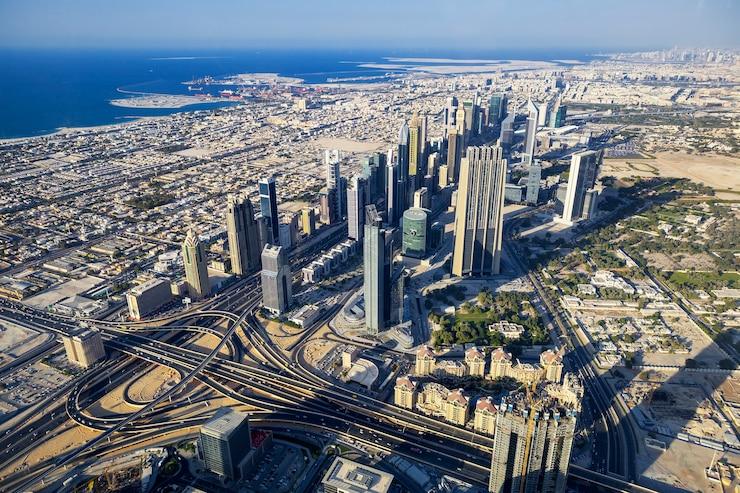Investing in Dubai Real Estate is an exciting opportunity for non-residents who want to grow their wealth in one of the world’s fastest-growing cities. Dubai is known for its luxurious lifestyle, modern infrastructure, and investor-friendly rules. Many people from across the globe are showing interest in owning property here. But before you make any investment, it’s important to understand the key rules and requirements, especially if you’re a non-resident.
In this blog, we will cover everything you need to know about how to buy property in Dubai as a foreigner, including legal processes, ownership types, financial considerations, and helpful tips to make your investment smooth and rewarding.

Why Dubai Real Estate Is Attractive for Non-Residents
Dubai offers many advantages for property buyers, especially foreign investors. Here are some key reasons why it’s worth considering:
- Tax-free income on rental properties
- High rental returns compared to other global cities
- Strategic location between Europe, Asia, and Africa
- World-class amenities and lifestyle
- Safe and regulated property market
Many foreigners are choosing to buy property in Dubai as a foreigner due to the potential for long-term value and rental income. The government also makes the process easy and transparent for investors.
Legal Aspects of Investing in Dubai Real Estate
Foreigners can legally own property in Dubai, but only in designated areas known as “freehold zones.” These include popular locations like Dubai Marina, Downtown Dubai, Palm Jumeirah, and Business Bay.
Ownership Types:
- Freehold Ownership: Full ownership of the property and land. Available in approved areas.
- Leasehold Ownership: Long-term lease, typically up to 99 years, but you don’t own the land.
To buy property in Dubai as a foreigner, you don’t need to be a resident or hold a UAE visa. However, property ownership may help you apply for a residency visa depending on the property’s value.
Step-by-Step Guide to Property Investment in Dubai
- 1. Choose the right location: Research neighborhoods based on your goals—rental income, capital appreciation, or lifestyle.
- 2. Hire a real estate agent: A registered broker helps you find the best deals and navigate legal paperwork.
- 3. Reserve the property: Sign a reservation agreement and pay a small deposit (usually 5-10%).
- 4. Sign the Sales Agreement (MoU): This agreement confirms all the terms and is signed by both buyer and seller.
- 5. Get No Objection Certificate (NOC): This is issued by the developer to proceed with the transfer.
- 6. Transfer ownership at Dubai Land Department (DLD): Pay the required fees (typically 4% of the purchase price) and register the property.
Financial Tips for Non-Resident Buyers
When planning to buy property in Dubai as a foreigner, keep these financial points in mind:
- Down payment: Usually 20-25% of the property value
- Mortgage: Some banks offer home loans to non-residents with certain conditions
- Service charges: Annual maintenance fees vary based on the building and area
- Rental yield: Returns range from 5-8% annually, depending on location
Make sure to plan your budget with these costs included. It’s also wise to consult a financial advisor to avoid any surprises.
Things to Consider Before Investing in Real Estate
While the process is relatively simple, there are a few things you should consider before making your investment:
- Property type: Off-plan vs. ready properties—off-plan may be cheaper but comes with risks
- Developer reputation: Check previous projects, delivery timelines, and quality
- Market trends: Study recent price trends, upcoming developments, and expected ROI
- Regulations: Stay updated on real estate laws and ownership rights
Whether you’re buying for rental income or personal use, understanding these aspects will help you make smart choices. Many new investors choose to buy property in Dubai as a foreigner after doing careful research.
Pro Tips: How to Maximize Your Investment
- Visit the property in person before finalizing the deal
- Choose a reputed developer to ensure quality and timely delivery
- Compare rental yields across areas
- Consider long-term goals: Whether it’s renting, reselling, or living in the property
- Work with licensed professionals: Broker, lawyer, and financial advisor
FAQs
Can foreigners buy property in Dubai?
Yes, non-residents can buy property in Dubai as a foreigner, especially in freehold zones.
Is it necessary to live in Dubai to own property?
No, living in Dubai is not a requirement to own property. Many people purchase real estate remotely, especially those seeking passive rental income opportunities.
What are the benefits of investing in Dubai Real Estate?
Investing in Dubai Real Estate offers tax-free rental income, high ROI, and ownership rights in prime global locations.
Can I get a mortgage in Dubai as a non-resident?
Yes, some banks provide home loans to non-residents with certain conditions, like higher down payments.
Will owning property help me get a UAE visa?
Yes, if your property is worth a certain amount (typically AED 750,000 or more), you may be eligible for a long-term visa.
Conclusion
Investing in Dubai Real Estate is a smart move for non-residents seeking long-term growth, stable returns, and a gateway to one of the most vibrant cities in the world.
By understanding the process, knowing your legal rights, and planning financially, you can successfully make a smart property investment in Dubai and enjoy the many benefits that come with it.
With the right guidance, this investment can offer not only financial rewards but also a chance to be part of Dubai’s global lifestyle and future growth. Whether you’re just starting or already exploring options, Dubai’s real estate market is ready for you.








